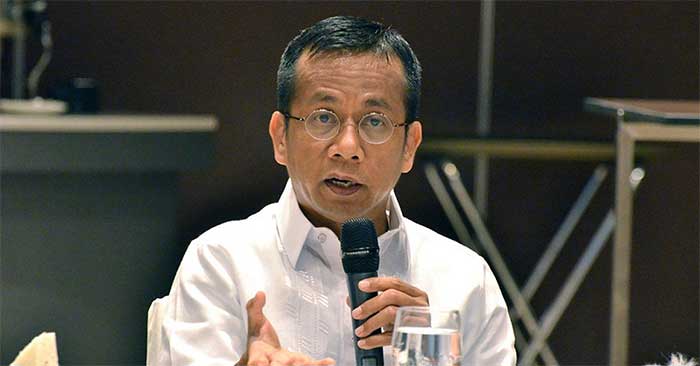
By Francis Allan L. Angelo
At the heart of a burgeoning economy lies the prowess of its policy planning and execution.
This was the crux of NEDA Secretary Arsenio M. Balisacan’s call during the public hearing of the Economy, Planning, and Development Bill at the House of Representatives on March 13, 2024.
Balisacan stressed the critical nature of the bill, intended to transition the National Economic and Development Authority (NEDA) into the Department of Economy, Planning, and Development (DEPDEV), thereby aligning its structure with the nation’s broader economic goals.
The bill’s passage is seen as a transformative step to ensure that the Philippines remains adaptable, competitive, and progressive in a globalized world.
It is designed to revamp the bureaucratic processes, paving the way for a more coordinated and strategic approach to national development.
From its inception in 1935 as the National Economic Council, to its 1973 reconstitution under Presidential Decree 107, and its significant role defined by Executive Order No. 230 in 1987, NEDA has continuously adapted to the changing needs of the nation’s governance. Balisacan’s call for reorganization is, thus, in keeping with a long tradition of institutional dynamism.
NEDA’s role has expanded significantly as it faces modern challenges. It orchestrates the formulation of social and economic plans and programs that are integrated and multifaceted, touching upon national and regional economic parameters, infrastructure project reviews, and policy analysis. The agency’s importance in advising both executive and legislative branches on socioeconomic issues is paramount.
The Secretary’s plea for an evolved NEDA comes from the acknowledgment that robust planning must be complemented by efficient budgeting, precise implementation, meticulous monitoring, and rigorous evaluation. He highlighted the agency’s pivotal role in these areas, asserting that the reorganization into DEPDEV would magnify its authority and facilitate a seamless integration with other governmental departments.
Balisacan’s emphasis on planning and development transcends mere policy making. It involves a holistic vision for the nation’s socioeconomic prosperity – a vision that was articulated through the AmBisyon Natin 2040 during his first term at NEDA. This long-term vision aims to secure a stable, comfortable, and secure life for all Filipinos, cutting across political cycles and requiring sustained efforts over decades.
The DEPDEV’s mandate would include the formulation of a medium-term national evaluation agenda, ensuring the government’s policies and projects remain under vigilant scrutiny for their effectiveness and alignment with national objectives. Furthermore, a capacity-building program on development policy and planning for governmental agencies at all levels is to be implemented, enhancing the overall governance fabric of the nation.
The bill’s passage is currently a matter of deliberation within the Technical Working Group of the Senate Committee on Ways and Means, having already garnered approval from the House of Representatives in November 2022. It is a crucial step forward, and its importance cannot be overstated – the DEPDEV is poised to become a linchpin in the Philippines’ economic strategy and governance.




















